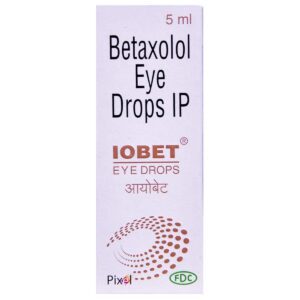BETAXOLOL
BETAXOLOL: Betaxolol is a medication that belongs to the group of drugs called beta blockers. It is primarily used to treat high blood pressure (hypertension) and certain heart rhythm disorders such as atrial fibrillation or ventricular tachycardia.
The mechanism of action of betaxolol involves blocking the activity of certain receptors in the body known as beta adrenergic receptors. By doing so, it reduces the effects of adrenaline and noradrenaline, leading to a decrease in heart rate and blood pressure. This helps in relaxing blood vessels, improving blood flow, and reducing the workload on the heart.
The usual recommended dose of betaxolol for hypertension is 10 mg to 20 mg taken once daily. The dose may need to be adjusted based on individual response and it is often taken with or without food. For heart rhythm disorders, a higher dose may be prescribed by a healthcare professional.
Like other beta blockers, betaxolol may cause certain side effects. These can include fatigue, dizziness, headache, slow heart rate (bradycardia), low blood pressure, and cold hands or feet. Some individuals may also experience shortness of breath, depression, nausea, upset stomach, or diarrhea. It is important to seek medical attention if any severe side effects occur, such as wheezing, chest pain, or swelling of the face, lips, or tongue.
It is essential to follow the prescribed dosage and instructions provided by the healthcare professional and to inform them about any pre-existing medical conditions or other medications being taken, as betaxolol may interact with certain drugs and should be used with caution in individuals with certain conditions such as asthma or diabetes.
Overall, betaxolol is an effective medication for the management of hypertension and certain heart rhythm disorders. However, it is essential to discuss the potential benefits and risks with a healthcare professional before starting this medication.

